Over Christmas break I had the wonderful opportunity to visit the Martin Luther: Art and the Reformation exhibit at the Minneapolis Institute of Art that is showing through January 15th. While much of the focus of the exhibit is, unsurprisingly, about Martin Luther and the protestant reformation of the 1500s, there is also a great deal in it on the rise and importance of movable type printing – which began in Germany in the 1450s.
While I loved the whole exhibit, I’m going to focus here on several artifacts dealing with the history of publishing that is so tightly connected to history of the reformation.
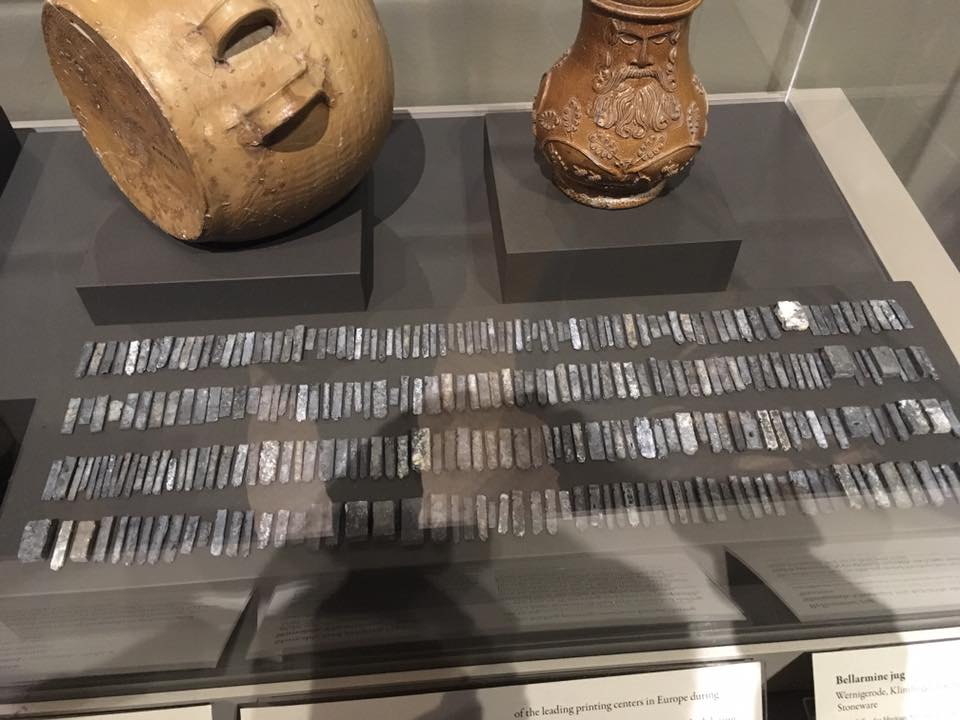
Approximately 500 pieces of lead movable type were found from excavations near where Luther lived. Here’s a sampling of them.
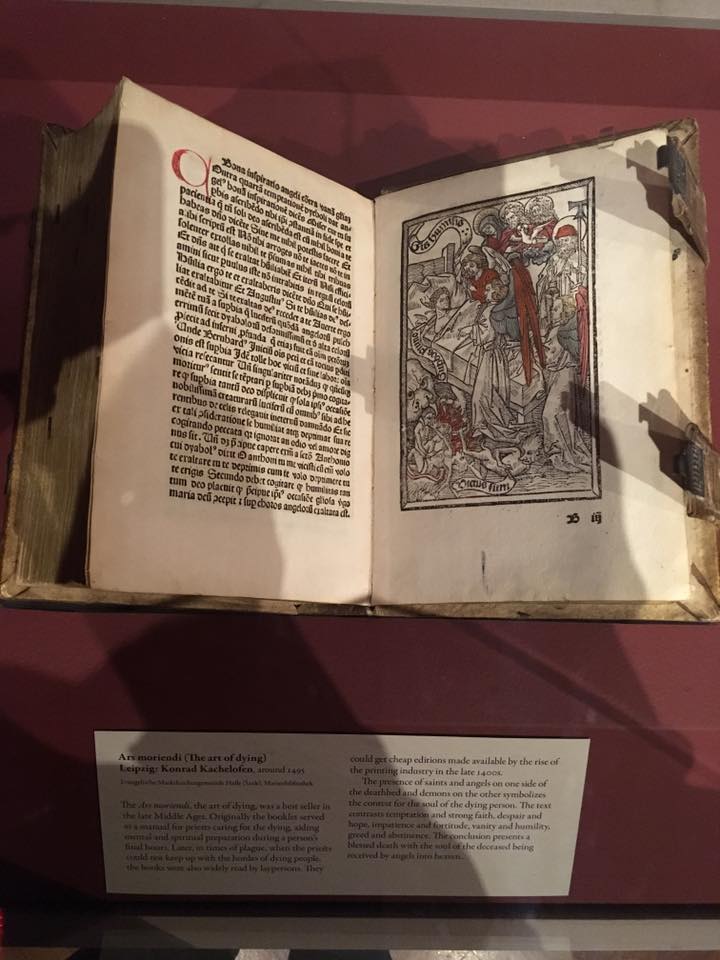
The book The Art of Dying on ministering to the dying from the 1490s. It is among the earliest of the typeset books. To me, this was one of the most impressive things I saw.
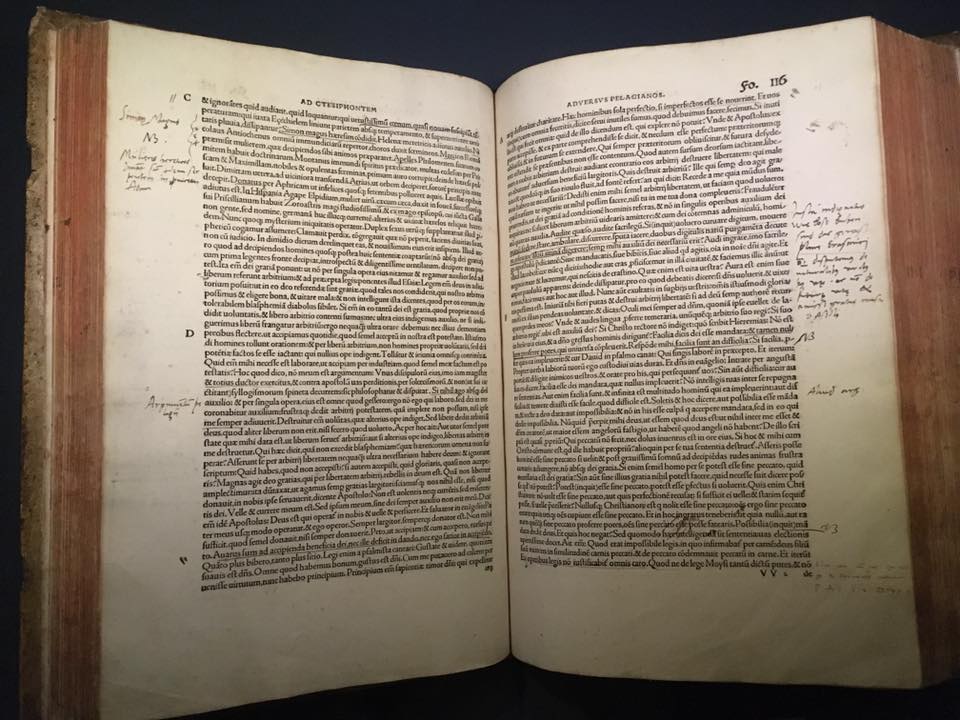
Luther’s annotations on a Latin (I think) translation of the Bible. Fascinating to see him taking notes in the the margin of books just as I might. Luther, in addition to everything else, was a college professor.
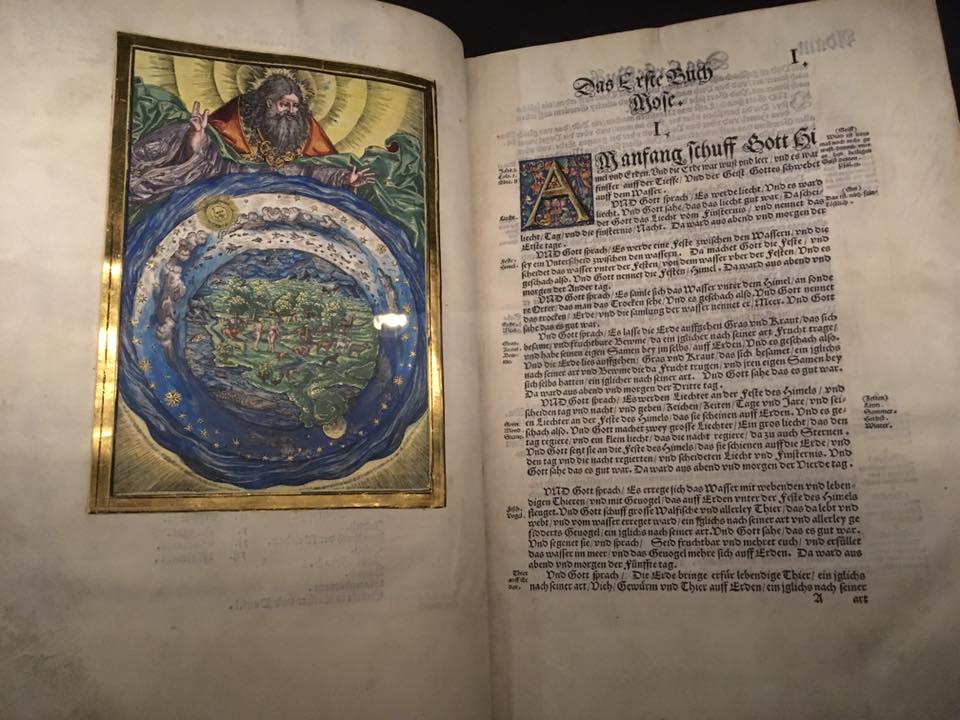
Pages from an early Luther German-translation of the Bible. Note the elaborate hand-drawn illustration next to the opening of Genesis. Even though books were being printed with movable type, they still had characteristics of old hand-copied books.
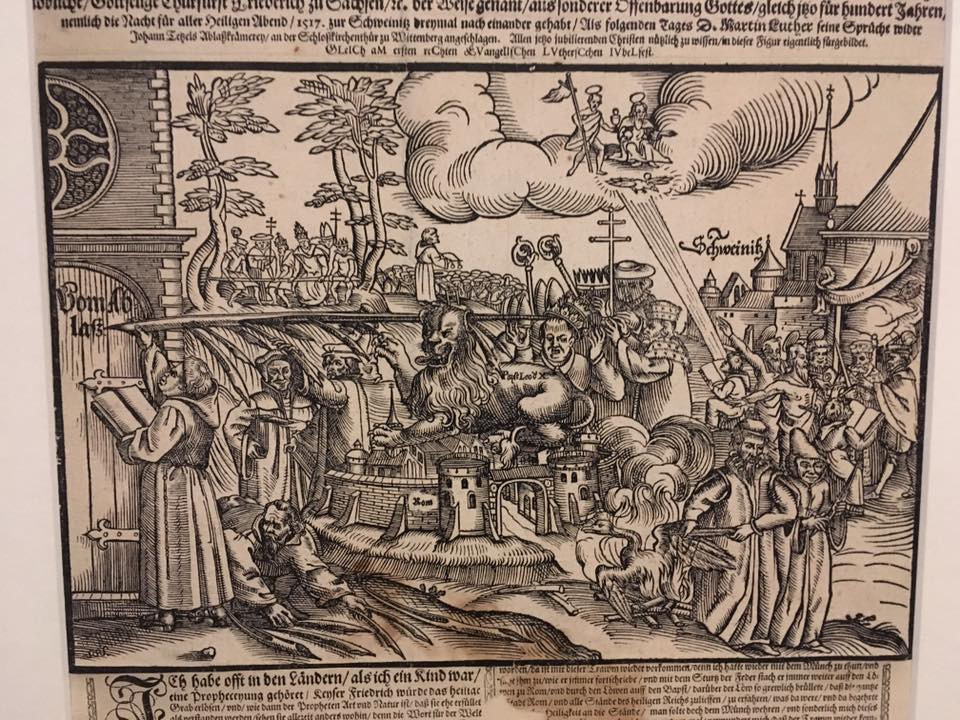
This published cartoon/illustration is based on a scene from a dream an admirer/supporter of Luther had. It portrays Luther with his pen knocking the crown off the head of the pope.
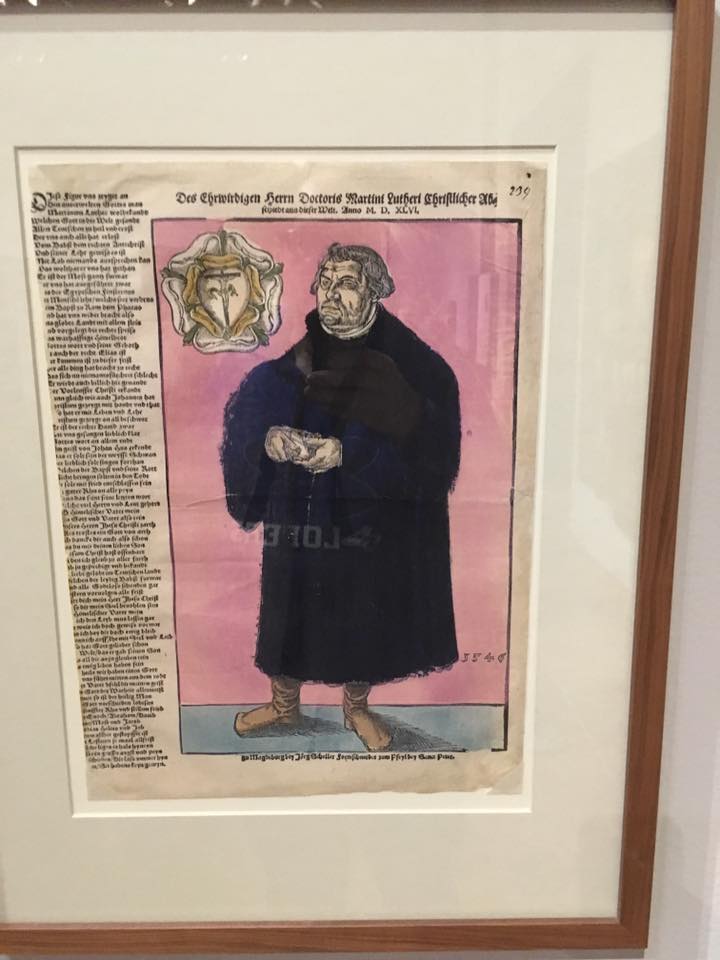
Some of the published art from the 1600s could look like something from Rolling Stone back when it was a newsprint magazine in the late 1970s.
And finally, just because I can, there is this…

A doctor’s plague mask from the time of the plague during Luther’s youth. Unfortunately for doctors, this mask was ineffective as plague was spread by fleas and not through the air.
